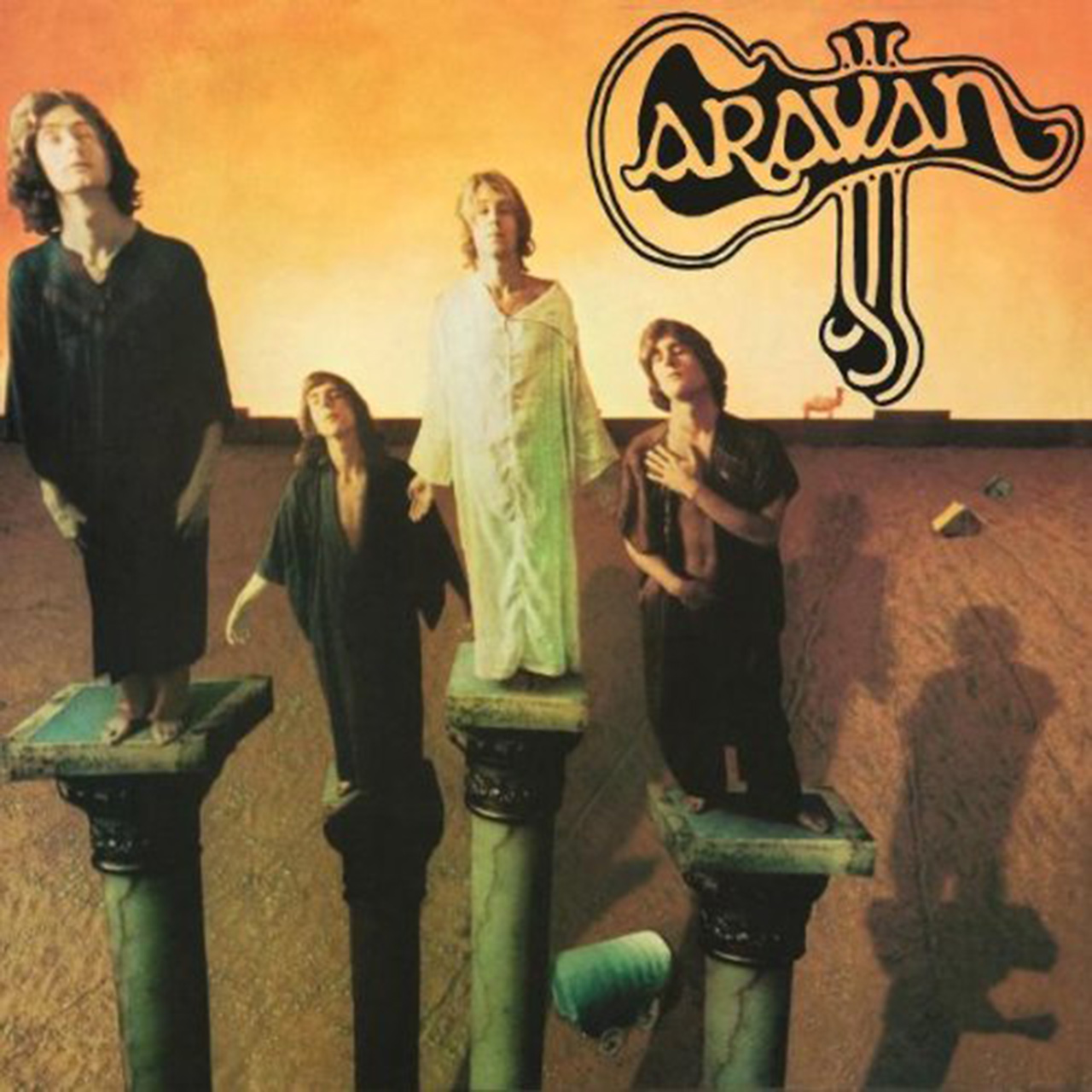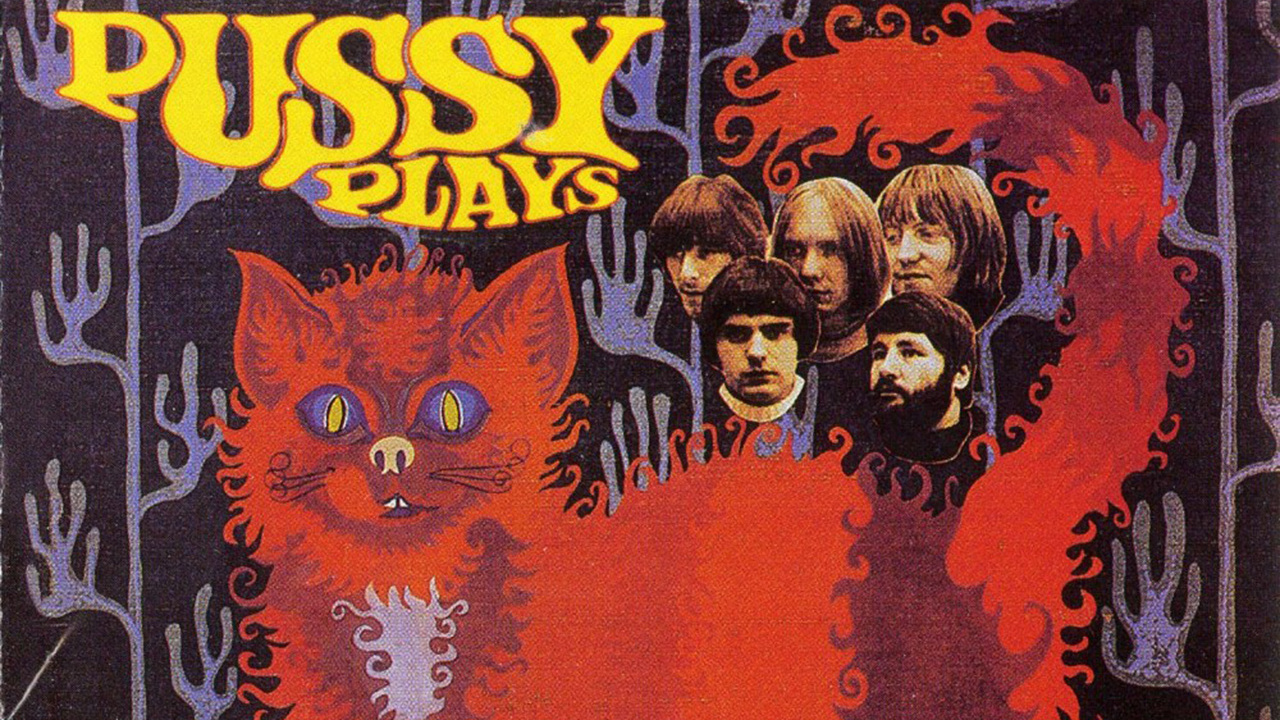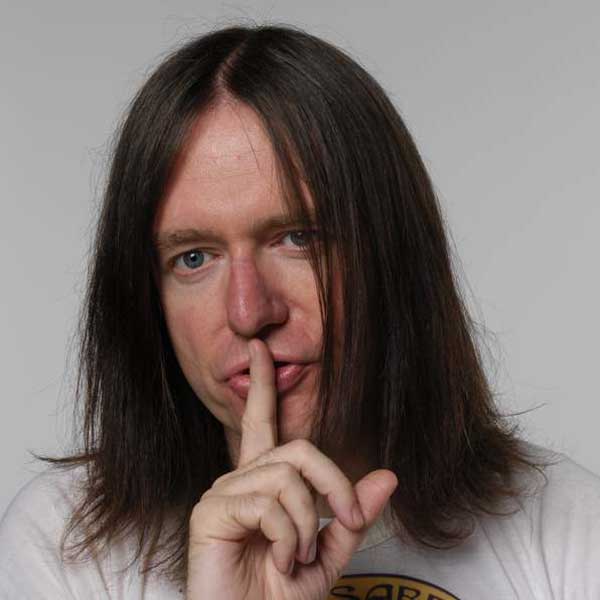The past few years have seen a rapid rise in interest in underground British rock music of the late 60s/early 70s. With the advent of blogs, file sharing and streaming services, many of the most obscure archive recordings from that era have suddenly become instantly available for everyone to hear – albeit often by illicit means. Furthermore, due to considerable demand, prices for original vinyl copies of some of these albums have gone through the roof on auction sites such as eBay.
So why this sudden interest? Has rock music gone so far that it doesn’t know where to go next and needs to look back? There is certainly a timeless aura of freedom within the grooves of a these records that, on reflection, suggests they were made in truly exciting times. Just imagine a modern heavy metal band forming and having the balls, let alone the notion, to call themselves Fuzzy Duck? They would, of course, be absolutely ridiculed. In that respect there’s an element of envy from listeners and musicians today who weren’t around to experience a time when this kind of off-the-wall freedom of expression was almost as commonplace as it was acceptable.
Things seem to have become increasingly rigid and processed over time, as musicians have learned, perfected, dissected and turned inside-out everything that was great about rock music in the first place, to the point where there is very little genuine originality, charm, soul or indeed humour left in it any more. With modern production techniques often almost completely removing the human aspect of the music, a lot of people are looking back on these generally ‘free-er times’ as a genuine source of inspiration.
It’s largely down to the research of enthusiasts and record collectors over the years that the thread of knowledge relating to some of this amazing music has been kept alive. Several reissue labels such as Bam Caruso, Edsel, See For Miles, Decal, Tenth Planet and Acme have done a great job in unearthing some of these lost gems. Many other labels have gone on to follow suit in recent years.
It’s interesting to note that a large number of the releases in question originally came out on major labels and their subsidiaries. It seems the majors were quite happy to sign experimental rock bands, yet at the same time didn’t have a clue what to do with them. As a result, many promising new acts were simply abandoned by the label and had split up out of frustration even before their records were released.

Some of the truly artistic subsidiary labels that flew the flag for alternative rock music were Neon, Dawn, Vertigo/Nepentha, Greenwich Gramophone Company, Deram Nova, Harvest and Mushroom, all of whose output is very collectable these days. Smaller late-60s labels such as Morgan Blue Town, Evolution, Stable and Middle Earth only managed to survive for a short period of time, producing a mere handful of releases (of note to Motörhead fans is the Stable-released 1969 psychedelic album Escalator by Sam Gopal, featuring a young Lemmy on guitar and lead vocals).
With not enough truly independent labels at the time, a lot of bands resorted to financing and making their own records, more commonly known as private pressings. Generally (for tax purposes) only 99 copies of these were pressed, and sold at gigs or used for promotional purposes. Some have gone on to be the most sought after records in existence. For example, the recent rediscovery of a privately pressed prog album from lost Scottish band Captain Marryat has led to a copy recently selling for close to £3,000. Other notable releases of this type are albums from Bodkin, Dark, Complex and Oberon, to name but a few.
The period of music of most interest to a number of people is the ‘grey area’ which occurred toward the tail-end of the 60s and continued into the beginning of the 70s. The term ‘prog psych’ has become synonymous with describing a multitude of bands from that era, mainly because they are neither overtly psychedelic nor full-blown progressive rock. For the purpose of this particular feature we’re going to look at 20 albums released between those golden years of 1968 and 1972.
There are several areas and genres of music that records referred to as prog psych generally fall into: rock, folk, occasionally jazz and often a combination of all three. The main thing that ties these records together is that they are all considered to be underground records of the time. The purpose of this article is not necessarily to define, or even fully understand the term; that would take away an essential part of what makes its mystery and magic so alluring.
There are obviously more significant and better-known releases from this period that have had a greater influence on the history of music. The list of albums here is intended to be a selection of unique records that in many ways bridge the gap between what is considered psychedelic and progressive rock.
Caravan - Caravan (Verve, 1968)
Although major commercial success always eluded them, there’s no denying Caravan’s significant influence on the roots of progressive rock. Along with Soft Machine they are the forefathers of what is often referred to as the Canterbury scene.
On this, their debut, there is a very strong psych presence in numbers such as Cecil Rons and the trippy Grandma’s Lawn. Opener Place Of My Own is a majestic pop-psych precursor to prog.
The Gods - Genesis (Columbia, 1968)
The band that would eventually (more or less) become Uriah Heep originally featured Mick Taylor and Greg Lake, prior to the recording of Genesis. Led by Ken Hensley’s distinctive melodic vocal style and keyboard wizardry, songs range from the obvious Hammond-drenched groovy dancer of Misleading Colours to the floating Mellotron strings and moody, distorted Hammond stabs of I Never Know. Opener Towards The Skies is a great heavy psych rocker, while You’re My Life and Time And Eternity are typically cool mod stompers.
Pretty Things - S.F. Sorrow (Columbia, 1968)
Perhaps the most obvious album in this list, it deserves a special mention. S.F. Sorrow is considered to be one of the first ‘concept albums’, despite being released almost two years after Nirvana’s Story Of Simon Simopath, The Moody Blues’ Days Of Future Passed, Sgt. Pepper, etc. This album really is a glorious celebration of everything that was great about rock music at the tail end of the 60s. An absolute classic.
Pussy - Pussy Plays (Morgan Blue Town, 1969)
Pussy Plays contains everything that’s cool about the period in question. From the humorously striking sleeve, through the varied and often off-the-wall music itself, it’s an album that entertains from start to finish. All Of My Life is a dark reflection with an eerie spoken-word, distorted-fuzz chorus and great keyboard break. Comets is a wild theremin freak-out with mysterious sounding backwards voices, whilst Open Ground is a mind-journey all of its own.
High Tide - Sea Shanties (Liberty, 1969)
Opener Futilist’s Lament is a visceral assault on the senses, brutally heavy and psychedelic. Vocalist/guitarist Tony Hill sounds like a satanic mix of Iron Butterfly’s Doug Ingle and Jim Morrison on heavy hallucinogenics. Despite these comparisons the sound is very British and also recognisable due to the electric violinist and future Hawkwind space cadet Simon House. It’s hard to imagine the kind of impact Sea Shanties had on audiences back then. It’s still capable of blowing minds today.
Arzachel - Arzachel (Evolution, 1969)
There is a strange, almost spectral aura to the production here; it sounds like it was recorded in a church. Featuring a young Steve Hillage on guitar and keyboard master Dave Stewart, Arzachel were a continuation of Uriel and a precursor to proggers Egg.
Garden Of Earthly Delights is a classic opener, and that is followed by some dark moments on Azathoth. The almost trip-hop, chilled out vibes of Queen St. Gang are way ahead of their time. Leg is another surprise; based on the Cream-popularised Muddy Waters classic Rollin’ And Tumblin’, it could be described as gothic blues.
Mighty Baby - Mighty Baby (Head, 1969)
Opener Egyptian Tomb is certainly one of the best-crafted, most memorable songs of the period. Once heard, its cosmic, jazzy grooves are difficult to forget.
There are a lot of free-flowing and Eastern vibes going on here, along with some very accomplished musicianship. Despite occasional touches of country (I’m From The Country), boogie (Trials Of A City) and Fairport-tinged folkrock (I’ve Been Down So Long), the psychedelic mastery of House Without Windows and Same Way From The Sun make this album a bona fide classic.
East Of Eden - Mercator Projected (Deram, 1969)
Mixing a dirty blues guitar riff with violin and trippy vocal effects, opener Northern Hemisphere conjures up an Eastern rock sound not too dissimilar to Mighty Baby. Isadora is the most memorable moment here, with a charming flute melody carrying the song, which also features a strange, almost reggae rhythm in the the mid-section. There are mellower moments too, with Bathers and Waterways contrasting with the harder-sounding tracks, while In The Stable Of The Sphinx takes on a more ambitious, jazz-rock approach.
Locomotive - We Are Everything You See (Parlophone, 1969)
With liberal use of brass, strings and keyboards, and no electric guitar, this is an album that, in places, really works. Catchy and memorable melodies complement You Must Be Joking and album highlight Mr. Armageddon, the later released as a single and really should have charted.
It’s possible that Locomotive confused people with their changes in musical direction after having a hit with a ska-pop tune. Their third single, I’m Never Gonna Let You Go, was average commercial white-soul fare, further squandering their chances of being taken seriously as a progressive rock band. A real shame.
- The 10 best prog albums, as chosen by Chris Merrick Hughes
- 10 Essential Psychedelic Rock Albums
- TeamRock Radio app back on Apple’s app store
- Read Classic Rock, Metal Hammer & Prog for free with TeamRock+
Arcadium - Breathe A While (Middle Earth, 1969)
Released on the Middle Earth Club’s house label, Breathe A While has an underground air they weren’t bothered about being commercial; a case backed up by 12-minute opener I’m On My Way. There are no really straight-up catchy songs on offer, and it’s perhaps a little self–indulgent for some, but despite this …Breathe is definitely a strong example of garage psych evolving into prog rock. Although it’s never really aggressive, there is a lumbering, ponderous sense of frustration and angst.
Human Beast - Volume One (Deram, 1970)
An often introspective album that drifts from heavy to surreal and various other places in-between. Mystic Man is a wah-wah odyssey featuring an other-worldly spoken mid-section over ritualistic percussion and backwards effects. Brush With The Midnight Butterfly has a seriously heavy Sabbath-type riff interspersed with free-form rhythms. Human Beast were an interesting power trio who, despite being a tad ponderous at times, warrant investigation.
T2 - It’ll All Work Out In Boomland (Decca, 1970)
More than just another progressive album with psychedelic tendencies, …Boomland is a straight-up classic of British rock.
Everything about it (except maybe the sleeve) has a presence and mood that is enticing. Great lead vocals by drummer Peter Dunton and amazing lead guitar playing from young never-to-be guitar hero Keith Cross are mixed with heavy and softer passages layered with horns, piano and Mellotron. It’s an epic work and absolutely essential listening.
Fairfield Parlour - From Home To Home (Vertigo, 1970)
Sounding like a sophisticated version of 60s whimsical psych band Kaleidoscope. And that’s exactly what they were. Another quintessentially English outfit made even more so by singer Peter Daltrey’s often over-emphasised use of the letter ‘S’. As poppy and melodic as Kaleidoscope but with a slightly more progressive edge, From Home To Home has a touch of Moody Blues about it, though not in a plagiarised way. There’s a lot of Mellotron here, on an album overall more acoustic-sounding than its heavy prog contemporaries.
Julian’s Treatment - A Time Before This (Young Blood, 1970)
Other-worldly and enchanting, A Time Before This was written and composed by sci-fi author Julian Jay Savarin, and the gorgeous, bewitching vocals of Cathy Parden hold your attention from beginning to end of this fantastical journey.
The occult atmosphere on The Black Tower and the title track make for a darker, more gothic sound than comparable European contemporaries such as Earth & Fire or Circus 2000. There’s some great keyboard work that never strays too far into classical stylings, and maintaining a groovy pop sensibility throughout.
CZAR - CZAR (Fontana, 1970)
An excellent album combining mod-ish pop-psych with early-Crimson-meets-Procol Harum prog sensibility. Tread Softly On My Dreams is the winner here with blazing Mellotron brass and stabbing riffs. Taking more than a year to record, by default it encapsulates in one album the fast-moving trends that were happening at the time. The singalong pop of Follow Me had ‘hit’ written all over it, while Beyond The Moon has some weird slide guitar.
Comus - First Utterance (Dawn, 1971)
A true gem of British underground music from the period, Comus were neither prog nor psych, but more dark folk.
Listening to First Utterance is like entering a different and strange world. The lyrics of Roger Wootton are very visual in a nightmarish, almost medieval way. Timeless anthems such as Drip Drip, The Bite and Diana only get better with age. Totally unique and excellent musicianship. This is surely the heaviest album ever recorded with acoustic guitars.
Fuzzy Duck - Fuzzy Duck (Mam, 1971)
Apparently only 500 copies of this were pressed, making it an extreme rarity. It’s a shame it didn’t receive a wider release, as it’s up there musically with other keyboard-driven hard and heavy prog-rock luminaries of the time such as Uriah Heep, Atomic Rooster and even Deep Purple. With great songs such as the hooky Just Look Around You, the Beggars Opera/ELP-type keyboard carousel of Mrs. Proust and the offbeat prog of Time Will Be Your Doctor, there isn’t a dull moment on the record.
Tractor - Tractor (Dandelion, 1972)
Starting with the dark grinding dirge of epic All Ends Up and ending with the 10-minute fuzz-fest of Make The Journey, Tractor certainly has its share of frenzied psychedelic/punkish prog workouts. These ideas were further explored in particular on the great instrumental Shubunkin and Hope In Favour.
For a two-piece band they made one hell of a racket. Somewhat surprisingly the album also displays a lighter, folky side with The Watcher, Little Girl In Yellow and Everytime It Happens; the latter two however, end up in distorted crescendos reminiscent of the superbly named fuzz-folk duo Fresh Maggots.
Second Hand - Death May Be Your Santa Claus (Mushroom, 1971)
And now, to coin a phrase, for something completely different.
Death May Be Your Santa Claus is almost as out-there as it gets in terms of British prog – if it can actually be described as that. It’s like the result of a jam between Arthur Brown and Frank Zappa, recorded by Brian Eno in a British mental institution. With masterful musicianship and arrangements, this is an album that goes from moments of inventive genius to the absurd and daft while managing to remain very entertaining.
The Best Psych Prog Debut Albums

